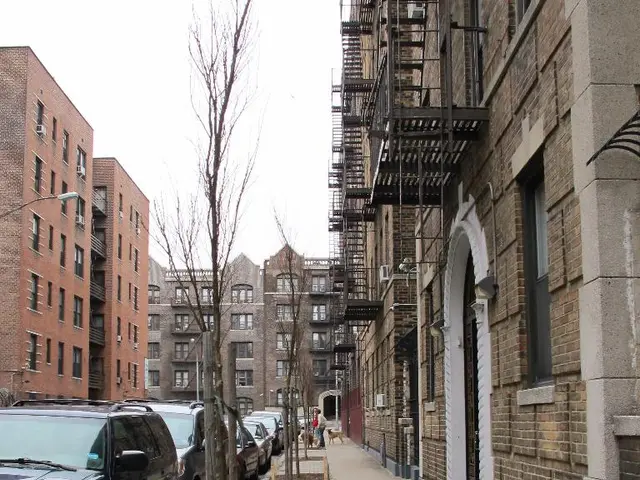Trump's Significant Tax Laws Timeline: Detailing the Activation Dates of Crucial Tax Statutes from Trump's Bill
Trump Tax Law Provisions Extended and New Deductions Introduced in the "One Big Beautiful Bill Act"
The "One Big Beautiful Bill Act" (OBBB), signed into law by President Donald Trump, has made several changes to the tax code, with a mix of permanent and temporary provisions.
Permanent Provisions
- The Tax Cuts and Jobs Act (TCJA) individual income tax rate reductions have been made permanent, ensuring the lower bracket rates and thresholds continue beyond 2025, with some additional inflation adjustments starting in 2026[1][3][4].
- The higher estate tax exemption from TCJA has been made permanent, fixing the exemption at $15 million per individual ($30 million for couples) starting in 2026, rather than reverting to lower pre-TCJA levels[3].
Temporary Provisions (2025–2028)
The OBBB introduces new individual deductions that are only effective through tax year 2028:
- Overtime Pay Deduction: Exempts overtime pay up to $12,500 (single) or $25,000 (married filing jointly)[2].
- Tip Income Deduction: Exempts tip income up to $25,000 for occupations where tipping is customary[2].
- Auto Loan Interest Deduction: Allows deduction up to $10,000/year on auto loan interest for vehicles assembled in the U.S. and purchased new[2].
- Senior Deduction: Additional $6,000 above-the-line deduction for individuals aged 65 and older[2].
These new deductions are explicitly limited to tax years 2025 through 2028 and will require legislative action if they are to be extended beyond 2028[2].
Summary of Expiration Timeline
| Provision | Expiration | |-----------------------------------|--------------------| | TCJA individual income tax cuts | Permanent (extended beyond 2025) | | Estate tax exemption (TCJA-based) | Permanent (fixed for 2026 onward) | | New deductions (overtime, tips, auto loan interest, senior) | Expire after 2028 |
Other notable changes include the qualified business income deduction of up to 20% being made permanent, effective from 2026. For those aged 55 or older, a $1,000 catch-up contribution is allowed[5].
In terms of health care and taxes, two significant changes begin in 2026. The limit on deducting mortgage interest on debt up to $750,000 is made permanent, effective from 2026. The law also expands eligibility for health savings accounts (HSAs), allowing more health insurance plans to qualify[6].
Regarding energy-efficient improvements, the energy efficient home improvement credit allows taxpayers to claim up to $3,200 per year for eligible improvements to their primary residence until the end of the year[7]. However, the popular electric vehicle tax credit offered under President Joe Biden's Inflation Reduction Act of 2022 is set to expire on Sept. 30, 2022[8].
Taxpayers are advised to review both expiring tax provisions and new ones that may apply to their situation[9].
- The new deductions introduced in the "One Big Beautiful Bill Act," such as the Overtime Pay Deduction, Tip Income Deduction, Auto Loan Interest Deduction, and Senior Deduction, are only effective through tax year 2028 and will require legislative action if they are to be extended beyond 2028.
- The qualified business income deduction of up to 20% is made permanent from 2026, and for those aged 55 or older, a $1,000 catch-up contribution is allowed, falling under business Finance provisions.




